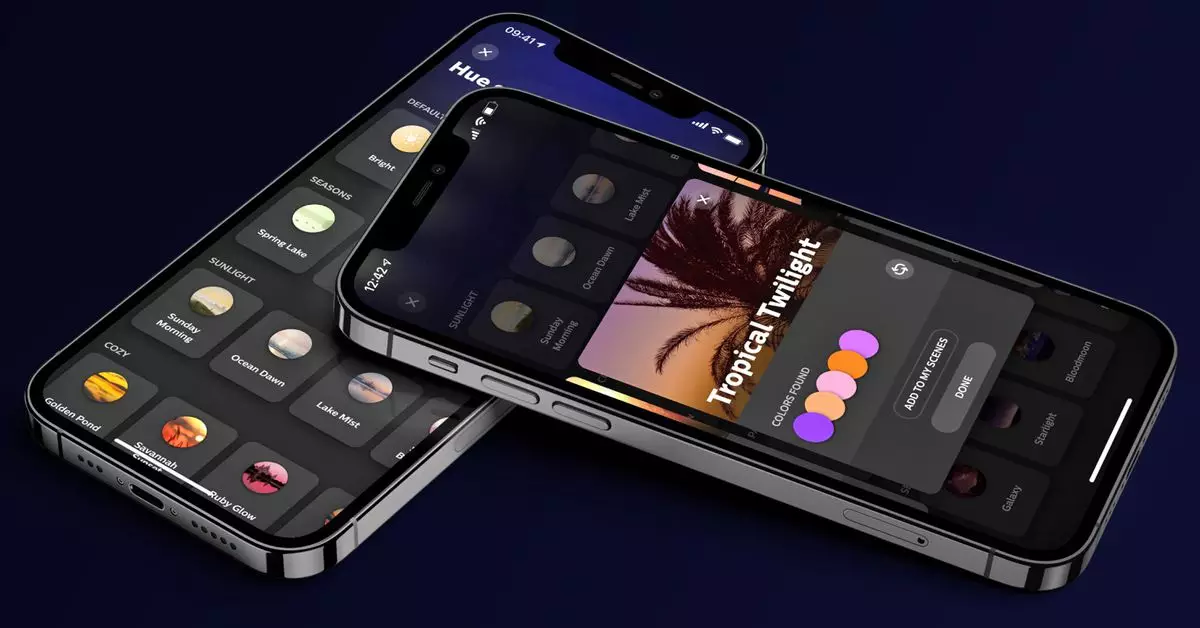In an era where smart technology becomes increasingly integrated into daily life, Philips Hue is at the forefront of innovation with its recent announcement of an AI-powered lighting assistant. This groundbreaking feature allows users to craft lighting scenes tailored to specific events, moods, or personal styles. The versatility of this tool aims to enhance the ambiance in any setting and introduces a new layer of customization to smart home systems.
The potential of this generative AI lighting assistant lies in its user-centric design, enabling individuals to communicate their lighting preferences with commands like “Create a scene for a cozy movie night” through the Hue app or by utilizing voice commands. This level of personalization not only promotes convenience but also encourages consumers to engage creatively with their lighting environments, transforming a typically mundane task into a dynamic and enjoyable experience.
Beyond simply proposing pre-existing scenes, the AI assistant has the capability to generate entirely new lighting configurations that resonate with the input provided by the user. This innovation sets Philips Hue apart in a growing market where other companies, like Govee and Nanoleaf, have also introduced similar AI-driven lighting features. Govee’s AI Lighting Bot and Nanoleaf’s “Magic Scenes” offer comparable functions, though each has its limitations. For instance, while Govee responds well to voice prompts, Nanoleaf restricts interactions to short text phrases.
Philips Hue’s assistant, which can adjust existing lights—including brightness and color—suggests a comprehensive approach to personalizing home illumination. Such adaptability ensures that this feature caters not just to spontaneous decisions but also to ongoing adjustments for optimal ambiance.
Philips Hue’s announcement is timely, as consumer interest in intelligent home solutions continues to surmount. The integration of AI into lighting systems signifies a shift not merely in how consumers interact with technology but also in how homes are perceived. Lighting plays a crucial role in creating welcoming atmospheres, enhancing productivity, or fostering relaxation. With such advancements, users might find themselves cultivating environments that are not only reflective of their preferences but also conducive to various activities.
Moreover, Philips Hue’s AI-powered assistant boasts compatibility with all existing Philips Hue products, promising a seamless transition for current users. While the exact launch date remains vague—expected in the first quarter of 2025—the anticipation builds around the transformative potential of this feature.
In addition to the AI assistant, Philips Hue introduced two more noteworthy innovations. The Hue Sync TV app now extends its support to LG televisions, maximizing entertainment experiences with dynamic lighting effects. Additionally, the newly launched color-changing Philips Hue Datura ceiling light, retailing at $299.99, adds a chic, customizable lighting option for users, demonstrating the brand’s commitment to enhancing interior aesthetics.
The convergence of AI and home technology, as evidenced by Philips Hue’s initiatives, suggests a future where personalization and automation redefine everyday experiences. As smart home devices evolve, they hold the potential not just to simplify tasks but also to create enriching environments that cater to our most nuanced sensory needs. With Philips Hue leading the charge, the future of home ambiance looks exceptionally bright.

